Is Medical Marijuana Legal in Georgia? Your Essential Checklist for Compliance
by Maya Green · April 7, 2025
Explore the legal status of medical marijuana in Georgia with this essential compliance checklist.

Overview
Medical marijuana is now legal in Georgia, primarily due to the Haleigh’s Hope Act. This legislation allows patients with qualifying conditions, such as chronic pain and epilepsy, to access low-THC oil. It’s important to remember that navigating this process can be challenging, and understanding the legal framework is crucial for those in need.
The article outlines the eligibility requirements for obtaining a medical marijuana card, providing supportive information to help you feel more informed about your options. Staying updated on ongoing legislative changes is essential, as these can impact your access to therapeutic cannabis. You may find that having a physician’s certification is a necessary step for accessing this treatment.
If you or a loved one are considering medical marijuana, know that you are not alone in this journey. There are resources available to guide you through the process, and taking the first step can be empowering. Remember, staying informed and connected with healthcare providers can make a significant difference in your experience.
Introduction
As the landscape of medical marijuana continues to evolve, Georgia finds itself at the forefront of important legislative changes that significantly affect patient access and treatment options. With the passage of pivotal acts like Haleigh’s Hope, the state has made meaningful strides in legalizing low-THC oil for medical use, offering relief for those enduring chronic conditions. Yet, it’s important to remember that navigating the complexities of obtaining a medical marijuana card can feel daunting for many.
This article aims to shed light on the legal framework, eligibility requirements, and essential steps needed to secure access to medical cannabis in Georgia. By doing so, we hope to ensure that patients feel informed and empowered to make the best choices for their health. You may find that understanding these processes not only alleviates some of your concerns but also opens the door to a path of relief and support.
Understanding the Legal Framework for Medical Marijuana in Georgia
Examine the Controlled Substances Act of the state to understand how marijuana is categorized, especially after the significant revisions in 2025. This legislation outlines the legal framework for therapeutic marijuana, including the distinctions between low-THC oil and higher THC products. It’s essential for individuals to be informed about what is permissible under state law, ensuring they feel secure in their choices.
Acquaint yourself with Haleigh’s Hope Act, a vital piece of legislation that has authorized low-THC oil for therapeutic use in the state. This act has profoundly impacted access for individuals, enabling those with qualifying conditions such as chronic pain, epilepsy, and anxiety to obtain necessary treatments without the legal uncertainties that once clouded the use of marijuana.
Stay informed about any changes in laws that could affect the question of whether medical marijuana is legal in Georgia. Recent discussions among lawmakers indicate potential expansions to the health-related marijuana program, which could further enhance patient access and rights. As Yolanda Bennett, co-founder of the Georgia Medical Marijuana Society, stated, “We need to expand Georgia’s therapeutic marijuana program.” It’s important to recognize that while the aim is not to increase adult use, many must understand that this plant serves as medicine.
If you have specific legal questions regarding medical marijuana use, consulting legal resources or professionals can provide valuable insights. Engaging with specialists can clarify the nuances of the law, particularly concerning personal cultivation rights and the regulations surrounding caregivers who may grow cannabis for individuals. Notably, some caregivers may be allowed to cultivate a limited number of plants for each individual, with rules varying at local and state levels.
The Haleigh’s Hope Act has significantly influenced cannabis use in Georgia, with case studies showcasing its beneficial effects on individuals facing conditions like epilepsy and chronic pain. As of 2025, the act continues to shape the landscape of therapeutic marijuana, fostering discussions on whether medical marijuana is legal in Georgia and ensuring that individuals have access to essential treatments. For instance, Leafy DOC has simplified access to therapeutic marijuana through its telehealth services, enhancing the quality of life for patients by streamlining the online application process and providing quick approvals, typically within 24-48 hours.
In addition to access, possessing a marijuana card offers legal protections under state regulations for the acquisition, ownership, and consumption of therapeutic herb. Patients may also enjoy reduced taxes on marijuana purchases in many states. Experts emphasize the importance of Haleigh’s Hope Act in legitimizing therapeutic marijuana as a viable treatment option.
Legal experts point out that while the act has made strides in access for individuals, ongoing advocacy is crucial to expand the program and address existing challenges, including clarifying the legality of medical marijuana in Georgia.
Data from the Controlled Substances Act reveals that the categorization of marijuana has evolved, raising questions about whether medical marijuana is legal in Georgia, as more patients are now legally authorized to use therapeutic marijuana. This shift reflects a growing acceptance of cannabis as a legitimate therapeutic treatment, supported by extensive research, including a review of over 10,000 scientific abstracts from the National Academies of Sciences, Engineering, and Medicine.
As you navigate the complexities of cannabis legality in the state, remember that the landscape is continually changing. Staying informed and connected with legal professionals can empower you to make the best decisions regarding your health and treatment options. Furthermore, be mindful that cannabis certification renewals for individuals vary by state, typically occurring every one to three years, depending on your location.
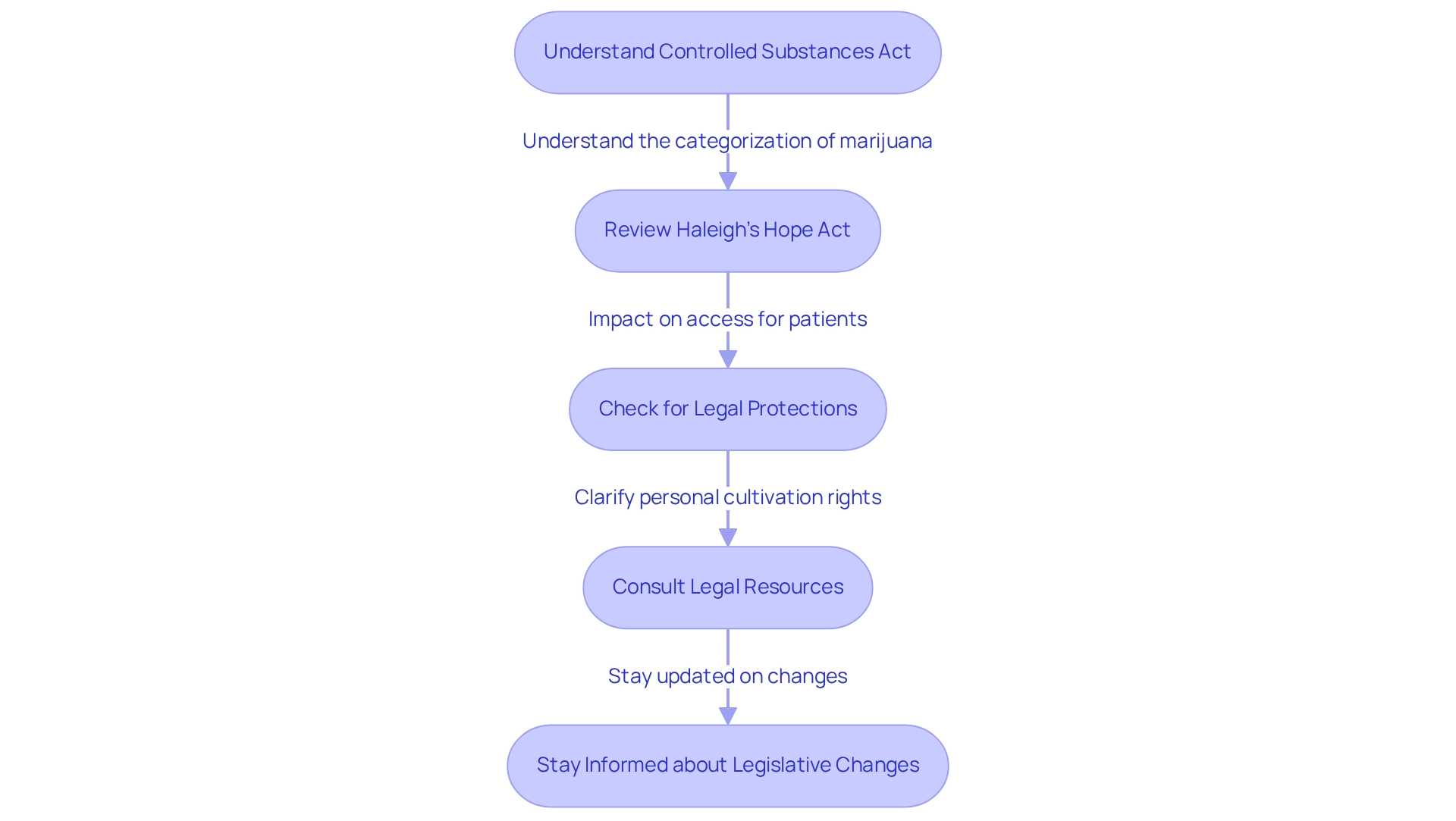
Eligibility Requirements for a Medical Marijuana Card
Verify your legal residency in Georgia, as this is a fundamental requirement for obtaining a cannabis card. It’s essential to consider whether medical marijuana is legal in Georgia through Leafy Doc’s telehealth services. Ensure that you are at least 18 years old or a legal guardian of a qualifying patient, as age restrictions apply. Obtaining a signed certification from a licensed physician is crucial, as it confirms that you have a qualifying health condition.
This certification plays a vital role in the application process, emphasizing the significance of professional health guidance in accessing therapeutic marijuana. Prepare the necessary documentation, including proof of residency (such as a utility bill or lease agreement) and a valid form of identification (like a driver’s license or state ID). These documents are essential for verifying your eligibility and residency status.
It’s important to recognize that starting in 2025, the eligibility criteria for a marijuana card in the state will be revised. This change raises questions about whether medical marijuana is legal in Georgia, reflecting ongoing legislative changes and the evolving landscape of therapeutic access. Recent statistics indicate that a significant percentage of Georgia residents are now qualified for cannabis cards, highlighting the growing acceptance and recognition of cannabis as a legitimate treatment option. Consider how residency impacts cannabis access; individuals in rural regions often face unique challenges in acquiring necessary certifications.
Leafy DOC addresses these challenges by providing a streamlined online application process, ensuring that patients can connect with licensed healthcare professionals without extensive travel. Many requests for cannabis cards are handled within 24-48 hours, improving the effectiveness of this procedure. Engage with healthcare professionals who emphasize the importance of physician certification for cannabis use.
As Yolanda Bennett, co-founder and director of operations for the Cannabis Society, states, “We need to expand the state’s cannabis program.” It’s not about increasing adult use, but about recognizing that this plant is medicine. Her insights highlight the importance of qualified assessments in ensuring that individuals receive suitable care tailored to their unique conditions.
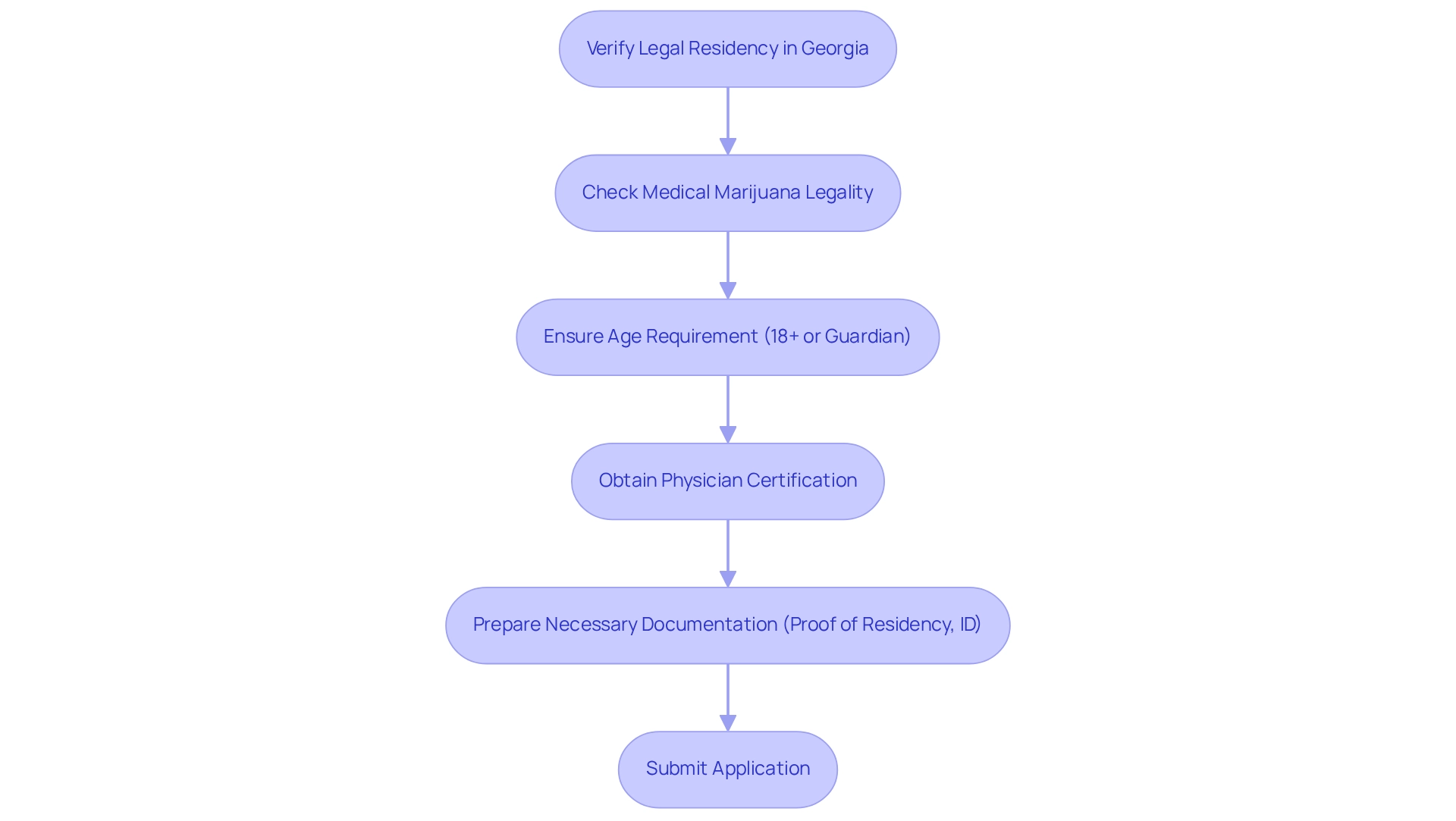
Qualifying Conditions for Medical Marijuana Use
In Georgia, the list of qualifying conditions for medical marijuana includes:
- Cancer
- Amyotrophic Lateral Sclerosis (ALS)
- Seizure disorders
- Multiple Sclerosis
- Crohn’s Disease
- Parkinson’s Disease
- PTSD
- Chronic pain
Chronic pain stands out as one of the most prevalent conditions among medical marijuana patients in Georgia, significantly impacting their quality of life. In 2024, the count of active users of therapeutic marijuana in the state reached 26,038, highlighting the growing acknowledgment of marijuana as a viable treatment option. Many patients, including those with chronic pain and PTSD, have shared transformative experiences with therapeutic marijuana, noting improvements in their symptoms and overall well-being.
For instance, a recent study revealed that veterans using therapeutic marijuana experienced fewer PTSD symptoms and reduced reliance on prescription medications. This underscores the potential benefits that medical marijuana can offer.
To ensure your condition qualifies under Georgia law, it’s essential to consult with a licensed physician who can provide clarity on whether medical marijuana is legal in Georgia. This step is vital for receiving accurate guidance tailored to your specific health needs. Leafy DOC offers compassionate and efficient telehealth services, making it easier to access expert advice and support from the comfort of your home.
Stay informed about any legislative changes that may expand or modify the list of qualifying conditions. Recent discussions among advocates suggest that proposed bills may not fully address the needs of individuals, particularly regarding the inclusion of edible products and smokable flower, which many prefer. Understanding how these legislative modifications could influence access to therapeutic marijuana is crucial for making informed choices regarding treatment options.
Engaging with healthcare experts can provide valuable insights into the benefits of medical marijuana for conditions like chronic pain and PTSD. Experts emphasize that marijuana can offer significant relief, with many patients reporting enhanced symptoms and overall wellness. Jolie Bushfield expressed, “I think this really is a miracle medicine. They’re going to find more and more and more diagnoses that are going to be responsive to cannabis or THC.”
As you navigate the process of obtaining a marijuana card, it’s important to ask, is medical marijuana legal in Georgia, while considering the evolving landscape of qualifying conditions. Understanding these nuances can empower you to make informed decisions about your health and treatment options. Additionally, remember that low-THC oil can only be purchased at licensed dispensaries, and costs are not covered by insurance.
Leafy DOC supports patients throughout this journey, backed by a community of over 40,000 patients and a network of trusted, board-certified marijuana doctors, ensuring you receive the care and support you need.
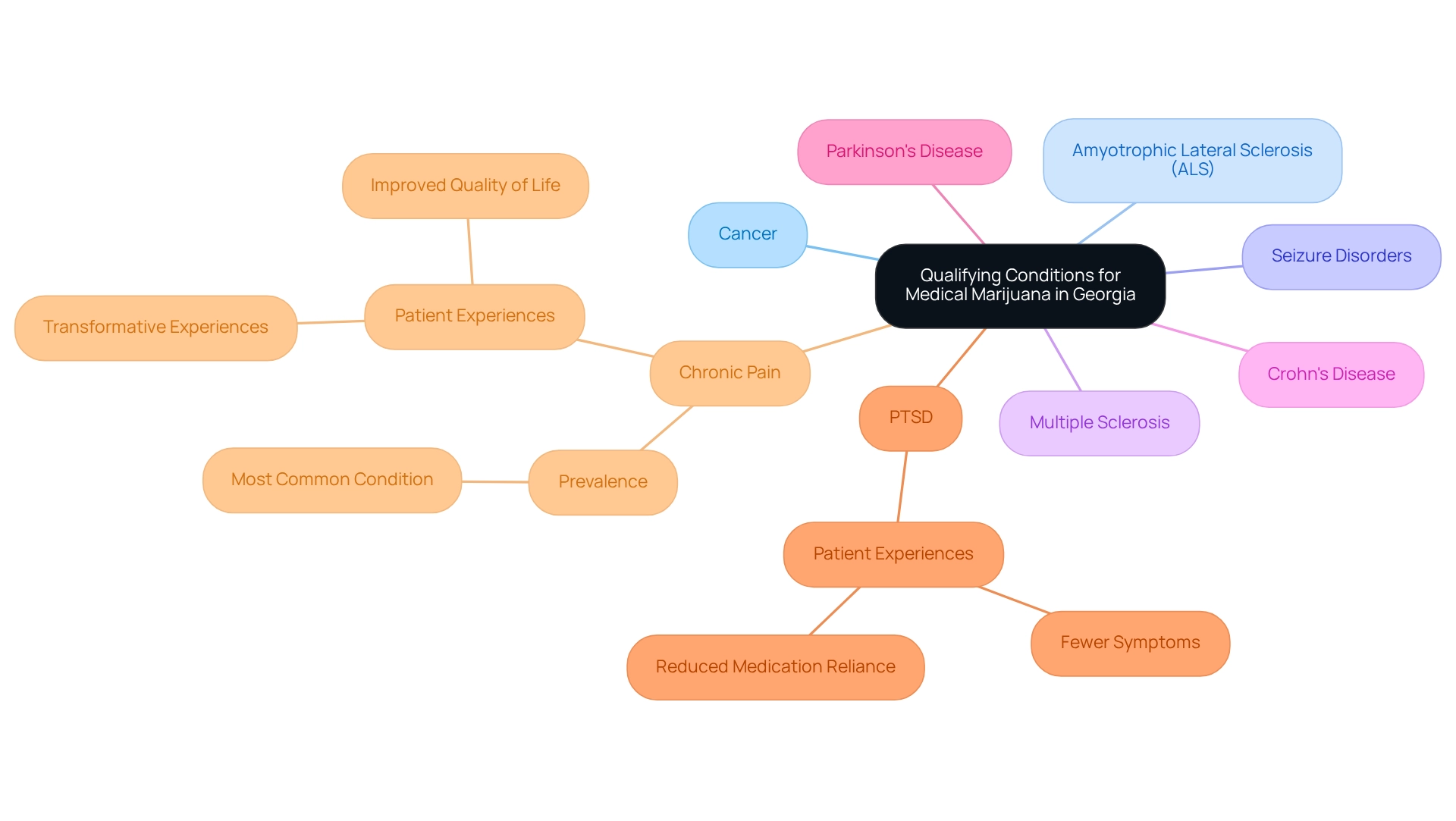
Step-by-Step Guide to Obtaining Your Medical Marijuana Card
Arrange a meeting with a certified doctor who specializes in cannabis therapy through Leafy DOC. This is a crucial first step, as the physician will review your health history and determine your eligibility for a marijuana card. With the current doctor shortage in Georgia, where 50,000 openings are anticipated to increase to 108,000 by 2030, securing an appointment as soon as possible is vital.
You can easily schedule your appointment online, whether on-demand or at a time that suits you best.
During your appointment, it’s important to discuss your health history in detail, including any qualifying conditions such as chronic pain, anxiety, or PTSD. If you are deemed eligible, the physician will provide a signed certification, which is essential for your application. Healthcare providers emphasize that having a comprehensive health history is crucial for the certification process.
Leafy DOC ensures that you can connect with the right doctor in just minutes, facilitating a smooth consultation.
Complete the online application via the Department of Public Health’s website. This user-friendly platform allows you to submit your application from the comfort of your home. Make sure to submit your application promptly, as after three delivery attempts, the package will be returned to the Department of Public Health (DPH).
Gather and submit the required documents, including your physician’s certification and proof of residency. Ensuring that all documents are accurate and complete will help expedite the process. Leafy DOC provides expert guidance throughout this application journey, ensuring you have the support you need.
Pay the application fee, which is a necessary step to process your request. After submission, the usual processing time for your card ranges from 15 to 30 days, so it’s wise to plan accordingly.
Once your application is approved, you will receive your cannabis card, granting you access to dispensaries across the state. Patients who obtain their Low THC Oil card can locate therapeutic dispensary sites via the Georgia Access to Medical Cannabis Commission website, aiding in the treatment and management of qualifying conditions. This efficient process is designed to provide prompt access to cannabis, raising the question of whether medical marijuana is legal in Georgia for those in need.
Get your medical card today!
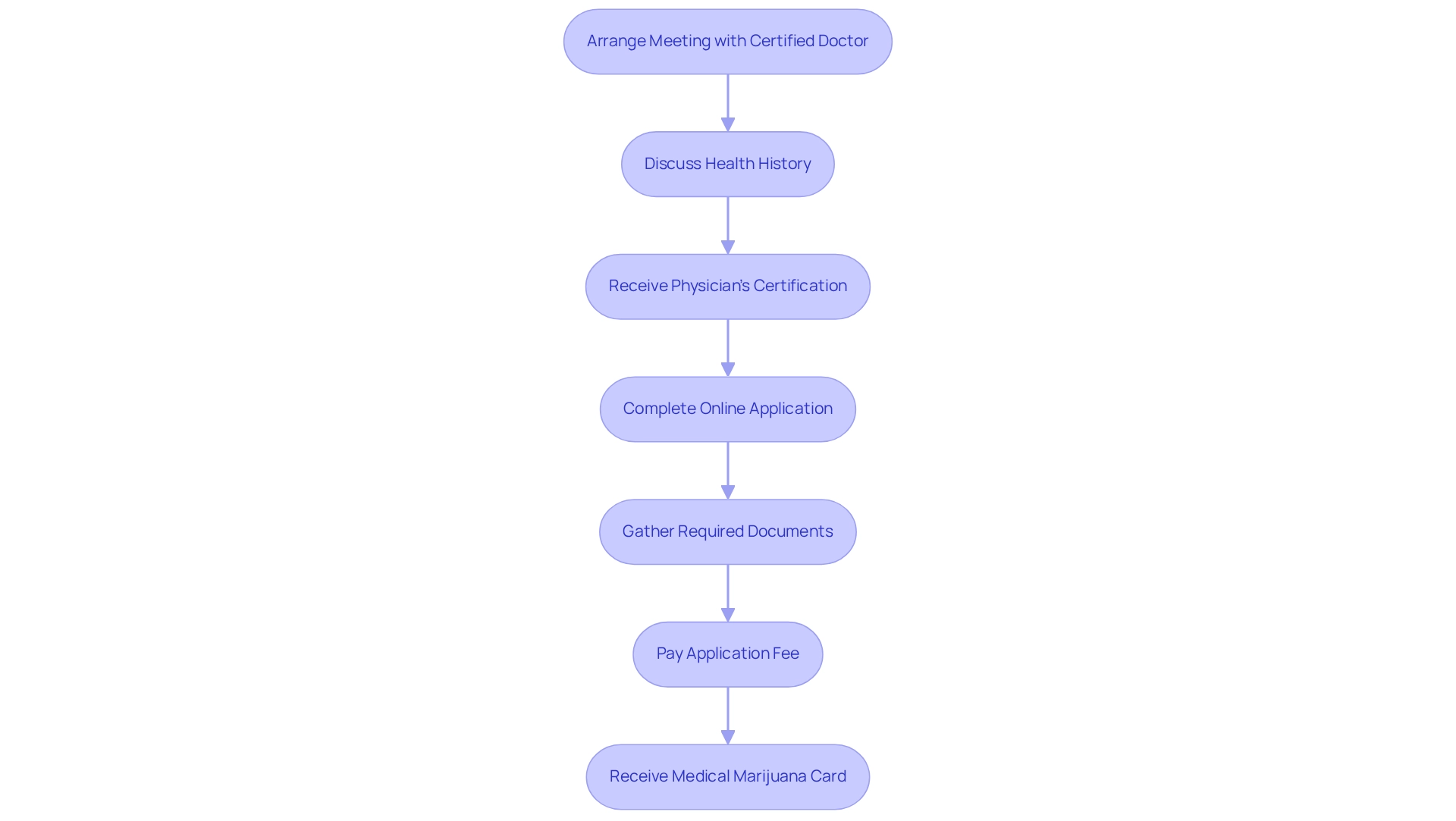
Possession Limits and Usage Guidelines for Medical Marijuana
It’s crucial to familiarize yourself with the possession limit, which currently allows patients to hold up to 20 fluid ounces of low-THC oil. This limit plays an essential role in ensuring compliance with the state’s cannabis regulations. While low-THC oil is permitted for therapeutic use, it raises an important question: is medical marijuana legal in Georgia? It’s vital to note that smoking marijuana remains unlawful.
Understanding this distinction is important for patients as they navigate the legal landscape effectively. Please adhere to the usage guidelines provided by your physician; these are tailored to your specific health needs. Following these guidelines is essential for safe and effective treatment. Additionally, ensure that you store your marijuana securely to prevent unauthorized access, especially in homes with children or pets.
Be mindful of restrictions on usage in public places or while operating vehicles. Using marijuana in public can lead to legal consequences, so it’s advisable to use it in private settings only.
As we look ahead to 2025, staying informed about any changes to the state’s cannabis regulations is essential, particularly regarding the question of whether medical marijuana is legal in Georgia. Supporters are advocating for program expansions to better assist patients and reduce reliance on the illegal market. Yolanda Bennett, co-founder and director of operations for the Georgia Cannabis Society, emphasizes, ‘We need to expand Georgia’s cannabis program.’ She adds, ‘It’s not that we’re trying to increase adult use, but people have to realize that this plant is medicine.’
For those seeking to navigate these regulations, Leafy DOC offers a streamlined process for obtaining your medical marijuana card through secure telehealth services. Many patients have found success with this approach, with applications processed within 24-48 hours, enhancing access to necessary treatments for conditions such as chronic pain and anxiety. If you’re searching for dispensary locations, the Access to Medical Cannabis Commission website is a valuable resource.
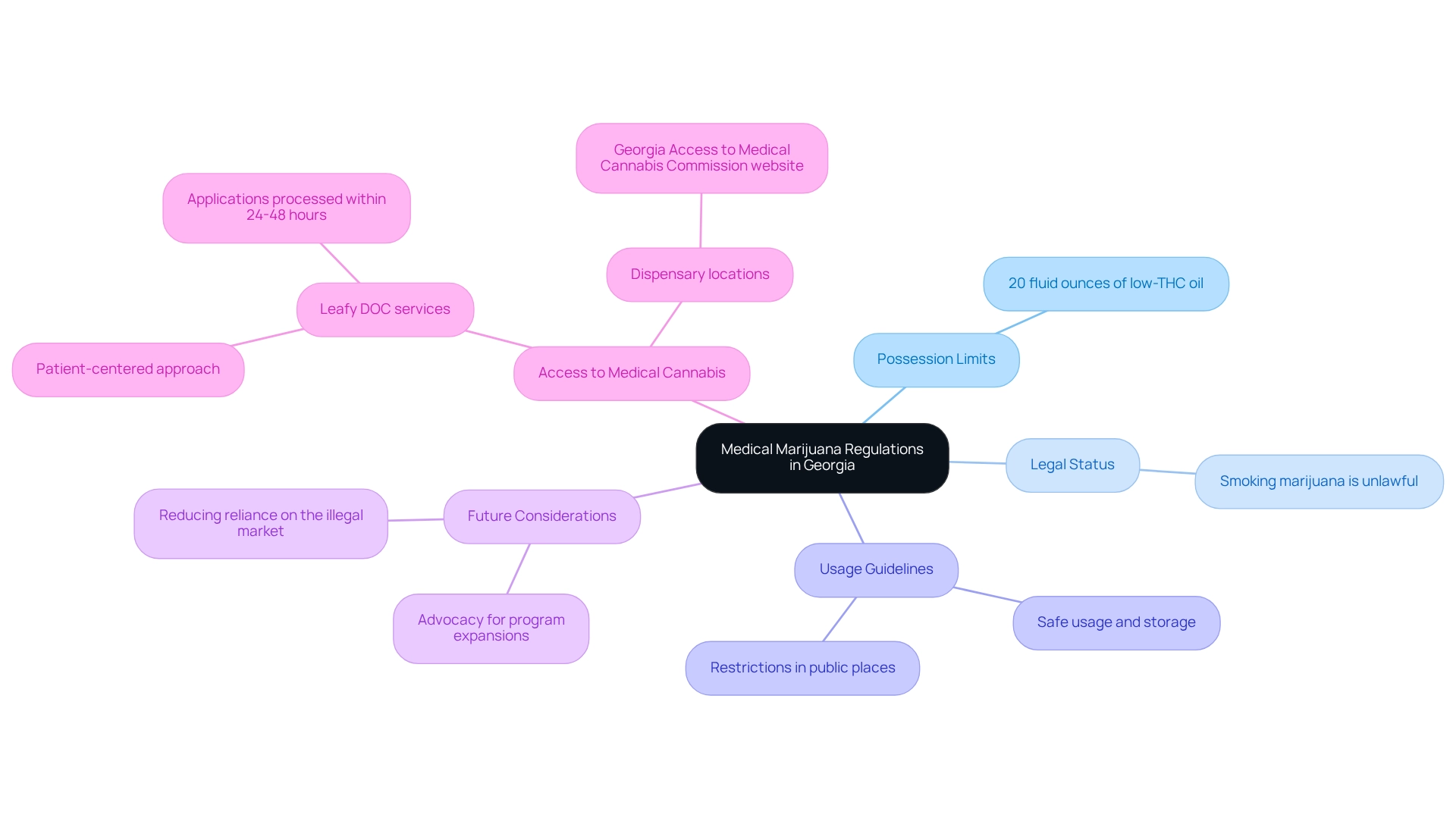
Navigating Medical Cannabis Dispensaries in Georgia
If you’re wondering about the legality of medical marijuana in Georgia and where to find licensed therapeutic dispensaries, the Georgia Access to Therapeutic Marijuana Commission website is a helpful resource. It provides a current list of authorized facilities, ensuring you have access to the care you need.
- It’s essential to choose a dispensary that is officially licensed to sell therapeutic products, as this guarantees compliance with state regulations. Notably, the number of dispensaries in the U.S. has decreased from 12,572 in September 2023 to 12,156 in January 2024, highlighting the importance of confirming the legitimacy of these facilities.
- Familiarizing yourself with the various products available at these dispensaries—such as oils, tinctures, capsules, and low-THC options—can help address your specific needs. Understanding the question of whether medical marijuana is legal in Georgia is crucial, especially since common qualifying conditions for a Medical Marijuana Card include chronic pain, anxiety, epilepsy, cancer, and more. To obtain your Medical Marijuana Card, you typically need a certification from a qualified physician, after which you may need to register with your state. Once your registration is approved, you will receive a client ID card that allows you to purchase health-related products.
- It’s wise to inquire about the dispensary’s policies on client consultations and product recommendations, as knowledgeable staff can guide you in selecting the most suitable items for your situation. As members of the Access to Medical Cannabis Commission have indicated, they are committed to advocating for access to care, particularly regarding the ongoing question of whether medical marijuana is legal in Georgia amidst varying federal and state policies.
- As we move into early 2024, the fluctuations in the number of licensed therapeutic dispensaries in the region may leave you questioning the legality of medical marijuana in Georgia, reflecting the changing landscape of regulations. Staying informed about these developments can empower you to find the best options available. Recently, Trulieve celebrated the grand opening of its therapeutic herb dispensary in Evans, enhancing access to low-THC products for individuals in the Augusta metropolitan area.
- Engaging with dispensary staff can provide valuable insights into product effectiveness and usage, enriching your overall experience and helping you make informed decisions about your treatment. Additionally, understanding the renewal procedures for your Marijuana Card across states can further simplify your access to essential care.
- Leafy DOC is dedicated to facilitating access to therapeutic marijuana through telehealth services and client education, ensuring that you receive the support you need throughout this journey.
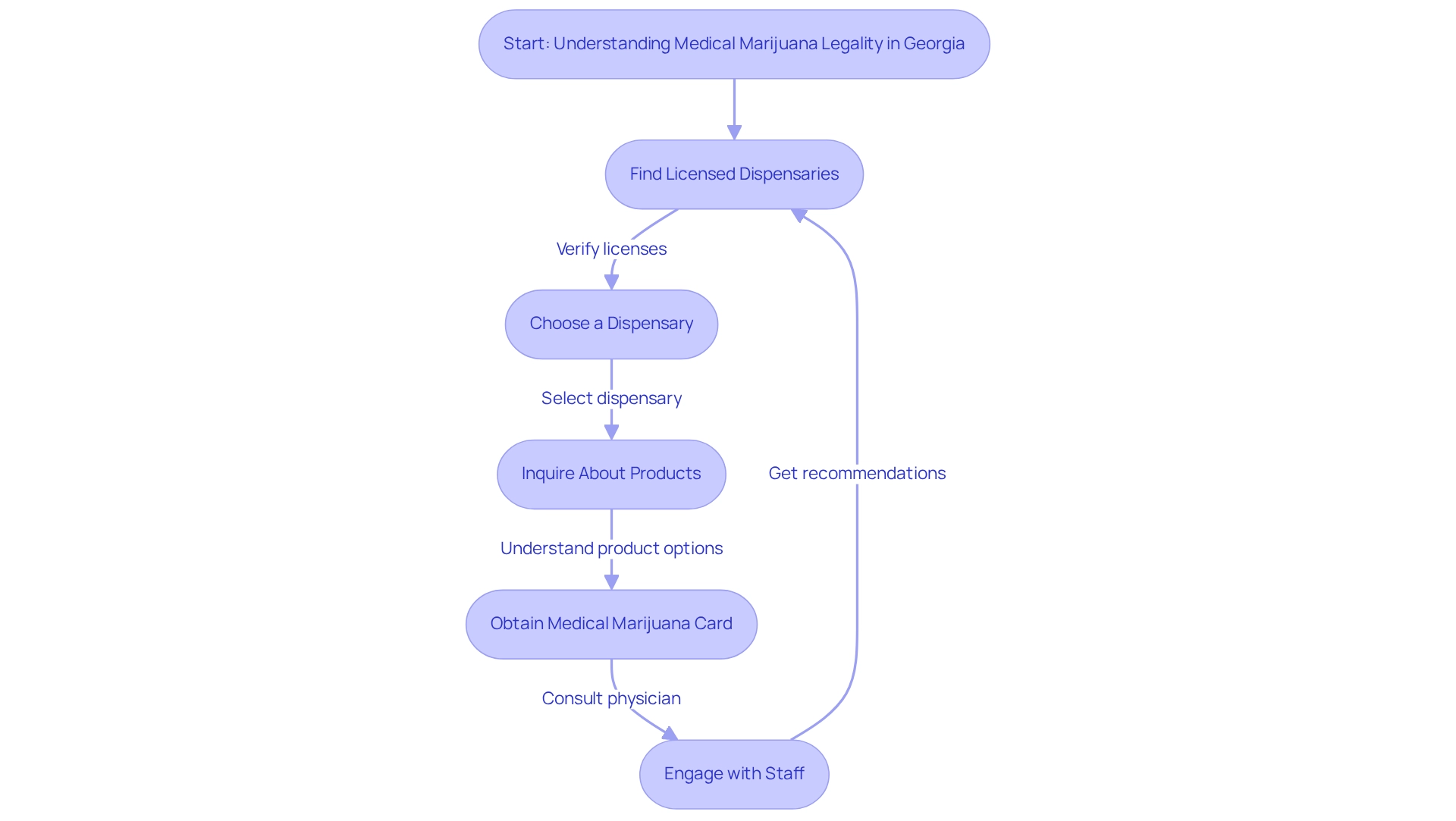
Recent Legislative Changes Impacting Medical Marijuana in Georgia
Stay alert regarding recent legislative changes in the state that could affect your access to medical marijuana. It’s essential to understand whether medical marijuana is legal in Georgia, particularly in relation to Senate Bill 220. This bill, which passed the Senate with a notable 42-14 vote, aims to expand access and address existing limitations within the current framework.
It’s important to stay informed about alterations to THC limits and the standards for qualifying conditions. These changes can significantly impact your eligibility and access to necessary treatments. Advocacy groups have highlighted the need for broader access, especially considering the restrictive nature of current laws.
Regularly check for updates from the Georgia Access to Medical Cannabis Commission, as they are responsible for implementing new regulations and ensuring compliance with state laws. Their announcements can provide crucial insights into how these legislative changes will be put into practice.
Participate actively with local advocacy groups that are striving to improve patient rights and access to therapeutic marijuana. These groups often offer valuable resources and assistance for navigating the complexities of the cannabis system, especially in light of recent legislative changes.
Consider the viewpoints of advocacy leaders, like Yolanda Bennett, Co-founder and Director of Operations at the local Medical Cannabis Society, who stresses, ‘We need to broaden the state’s health-related marijuana program.’ It’s not about increasing adult use; it’s about recognizing that this plant is medicine. This highlights the pressing need for legislative change to better support the over 27,500 registered individuals in the state, many of whom are advocating for broader access to therapeutic options.
Additionally, be aware of the penalties for marijuana DUI offenses, which escalate with repeat offenses. This includes fines, incarceration, community service, and license suspension. Understanding these legal aspects is crucial as you navigate your medical marijuana journey.
Lastly, keep an eye on legislative proposals like House Resolution 281, which aimed to legalize and regulate marijuana in Georgia but ultimately failed in the House. This emphasizes the ongoing challenges faced in promoting marijuana reform in the state, particularly concerning the question of whether medical marijuana is legal in Georgia.
For those looking to acquire their marijuana card, Leafy DOC streamlines the procedure via its online platform, connecting users with authorized doctors throughout the U.S. In just a few minutes, you can obtain your marijuana certification, which is essential for accessing dispensaries and purchasing therapeutic products. Understanding the qualifying criteria—such as chronic pain, PTSD, and other long-term conditions—is vital for those seeking to benefit from cannabis therapy.
Leafy DOC also offers educational resources to assist individuals in navigating state regulations and certification renewals, ensuring that you remain informed and compliant.
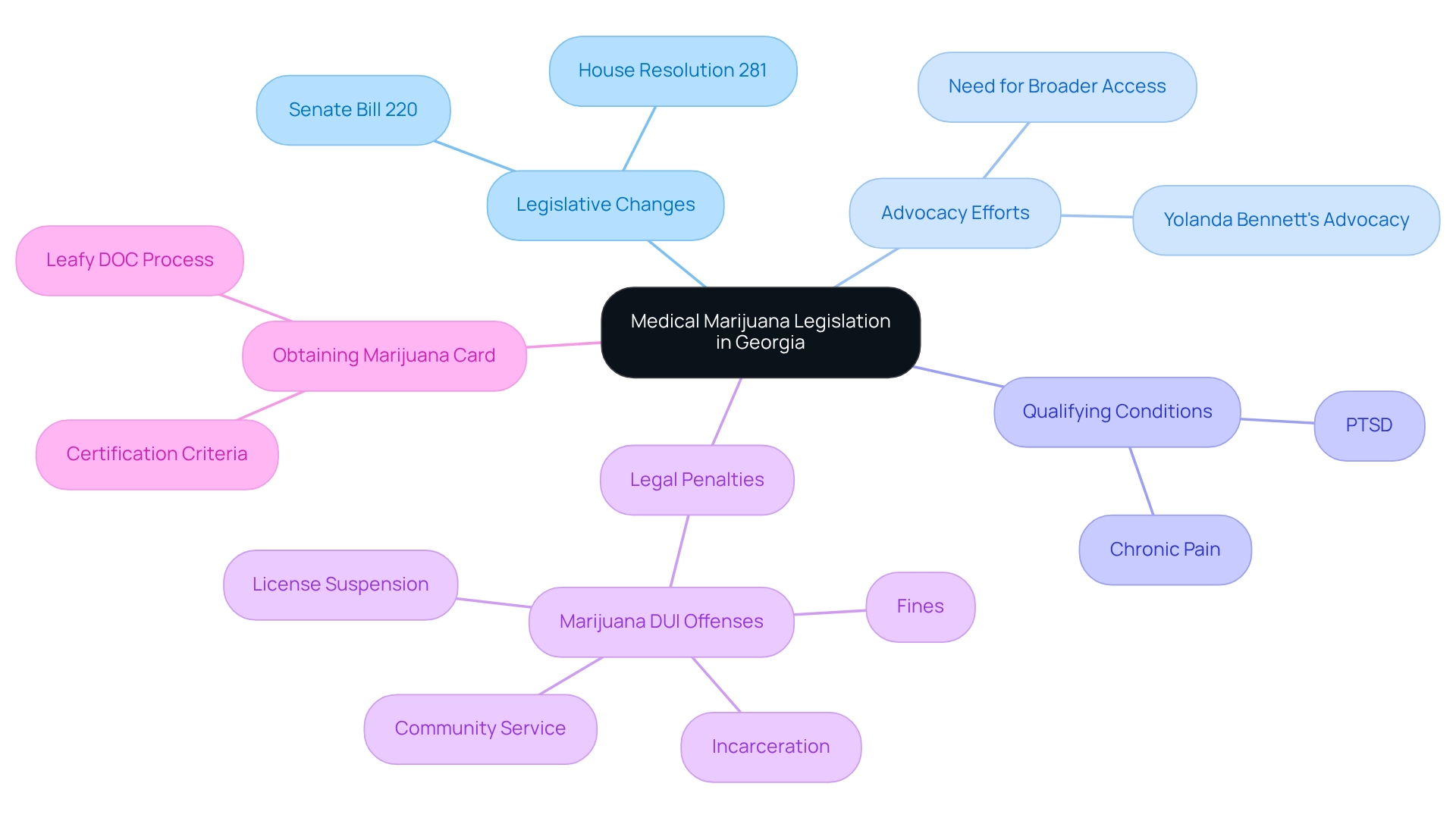
Frequently Asked Questions About Medical Marijuana in Georgia
-
What is the procedure for applying for a cannabis marijuana card?
To apply for a medical marijuana card in Georgia, the first step is to obtain a recommendation from a licensed physician registered with the Georgia Medical Marijuana Use Registry. At Leafy DOC, we understand that this can feel overwhelming, so we simplify the process by allowing you to schedule an on-demand telehealth appointment from the comfort of your home. Once you receive the recommendation, you can complete the online application through the state Department of Public Health’s website. This process involves submitting your personal information, proof of residency, and the physician’s recommendation. The registration fee is $25, with an annual renewal fee of the same amount. It’s important to note that currently, only Low THC oil is permitted, while whole plant or smokable marijuana remains unavailable. This situation can raise questions about the legality of medical marijuana in Georgia, reflecting the state’s regulatory environment. -
How long does it take to receive my card after applying?
The average processing time for medical marijuana card applications in Georgia is typically between 24 to 48 hours, with many applications processed within this timeframe. However, it’s essential to remember that renewal applications can only be submitted starting 45 days before the card’s expiration. This timeline helps ensure that you maintain continuous access to cannabis without interruption. -
Can I use my cannabis card in other states?
It’s important to understand that Georgia’s medical marijuana card is not universally accepted in other states. While some states have reciprocity agreements that allow out-of-state marijuana patients to purchase the substance, Georgia does not currently participate in such agreements. We encourage you to check the specific laws of the state you plan to visit to understand your options. -
What should I do if my application is denied?
If your application for a medical marijuana card is denied, you will receive a notification detailing the reasons for the denial. This can be disheartening, but you can address the issues outlined in the notification and reapply. It may also be beneficial to consult with your recommending physician to ensure that all necessary documentation is complete and accurate before resubmitting. -
Where can I find more information about healthcare marijuana regulations in that state?
For comprehensive information about medical cannabis laws in Georgia, you can visit the Georgia Department of Public Health’s website. They provide updates on regulations, application procedures, and frequently asked questions. Additionally, resources such as patient advocacy groups can offer guidance and support throughout the application process. -
What are some qualifying conditions for a Medical Marijuana Card?
Patients seeking a medical marijuana card may qualify based on various conditions, including AIDS/HIV, anxiety, arthritis, cancer, chronic pain, epilepsy, glaucoma, migraine, multiple sclerosis, nerve pain, and PTSD. At Leafy DOC, we are here to assist you in navigating the certification process and connecting with licensed physicians who can evaluate your condition and provide the necessary recommendations.
Get Your Medical Card Today by Booking an Appointment with Leafy DOC!
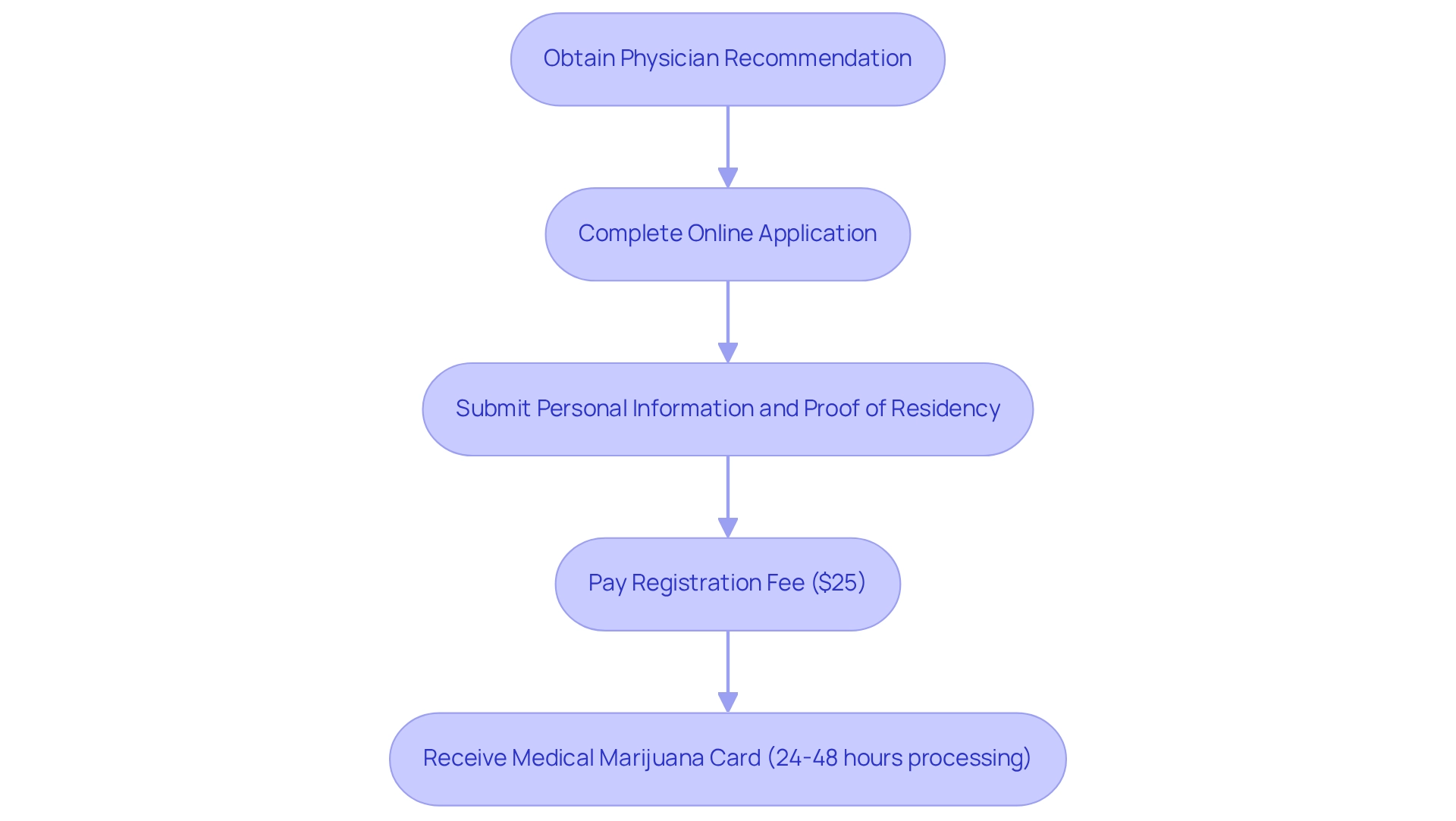
Conclusion
Navigating the medical marijuana landscape in Georgia has become increasingly accessible, thanks to significant legislative changes and resources available for patients. The Haleigh’s Hope Act has been pivotal in legalizing low-THC oil for individuals with qualifying conditions, such as chronic pain and epilepsy, offering much-needed relief. By understanding the legal framework, eligibility requirements, and the step-by-step process to obtain a medical marijuana card, you can take control of your health and treatment options.
As the state continues to evolve its medical cannabis program, it’s important to stay informed about changes in legislation and expanding qualifying conditions. Engaging with legal professionals and advocacy groups can help address any uncertainties, ensuring you are aware of your rights and responsibilities. With resources like Leafy DOC streamlining the application process, obtaining a medical marijuana card has never been easier, allowing you to access the treatments you need swiftly.
Ultimately, the journey to accessing medical cannabis in Georgia is marked by progress and ongoing advocacy. By remaining proactive and informed, you can navigate this evolving landscape and embrace the therapeutic benefits of medical marijuana, enhancing your quality of life and overall well-being. The time to explore these options is now, ensuring that medical cannabis is recognized not just as a remedy, but as a legitimate and vital component of healthcare.
Frequently Asked Questions
What is the Controlled Substances Act and how does it relate to marijuana in Georgia?
The Controlled Substances Act outlines how marijuana is categorized in Georgia, particularly after significant revisions in 2025. It establishes the legal framework for therapeutic marijuana, distinguishing between low-THC oil and higher THC products.
What is Haleigh’s Hope Act and what impact has it had?
Haleigh’s Hope Act is legislation that authorized low-THC oil for therapeutic use in Georgia. It has improved access for individuals with qualifying conditions like chronic pain, epilepsy, and anxiety, allowing them to obtain necessary treatments without legal uncertainties.
Are there any recent discussions regarding medical marijuana laws in Georgia?
Yes, there have been discussions among lawmakers about potential expansions to the health-related marijuana program, which could enhance patient access and rights while maintaining that the aim is not to increase adult use.
How can individuals get legal advice regarding medical marijuana use?
Individuals with specific legal questions about medical marijuana should consult legal resources or professionals to clarify the nuances of the law, especially concerning personal cultivation rights and caregiver regulations.
What role does Leafy DOC play in accessing therapeutic marijuana?
Leafy DOC facilitates access to therapeutic marijuana through telehealth services, streamlining the online application process and providing quick approvals, typically within 24-48 hours.
What legal protections do patients have when possessing a marijuana card?
Patients with a marijuana card have legal protections under state regulations regarding the acquisition, ownership, and consumption of therapeutic marijuana, and may also benefit from reduced taxes on their purchases.
What ongoing challenges exist regarding medical marijuana access in Georgia?
Despite the progress made by Haleigh’s Hope Act, ongoing advocacy is needed to expand the program and clarify the legality of medical marijuana in Georgia.
How has the categorization of marijuana changed in Georgia?
Data from the Controlled Substances Act shows that the categorization of marijuana has evolved, leading to more patients being legally authorized to use therapeutic marijuana, reflecting a growing acceptance of cannabis as a legitimate treatment.
What are the requirements for obtaining a cannabis card in Georgia?
To obtain a cannabis card in Georgia, individuals must verify their legal residency, be at least 18 years old or a legal guardian of a qualifying patient, and obtain a signed certification from a licensed physician confirming a qualifying health condition.
How does residency affect cannabis access in Georgia?
Residency can impact cannabis access, as individuals in rural areas may face unique challenges in acquiring necessary certifications. Leafy DOC helps address these challenges by providing an online application process that connects patients with licensed healthcare professionals.
Last Updated: April 7, 2025
Get Your Medical Card
Connect with a licensed physician online in minutes

Like This Article?
Share with your friends
Table of Contents
Keep Reading

5 People Who Should Use Cannabis-Infused Lip Balm
Discover the surprising benefits of cannabis-infused lip balm and why these 5 individuals should try it today! Don’t miss out on the soothing effects – click now to find out who should use cannabis lip balm and experience its incredible results for yourself!
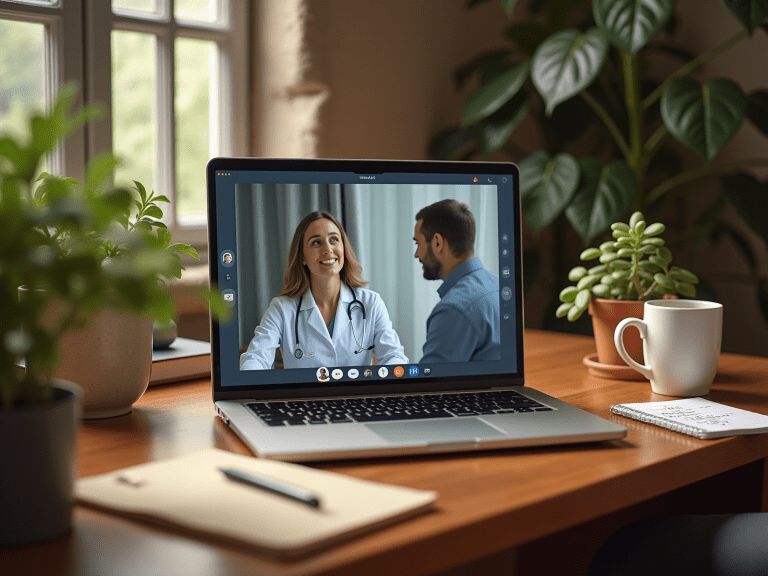
3 Steps to Get Your wv medical marijuanas card online
Easily obtain your WV medical marijuana card online with our simple three-step guide.
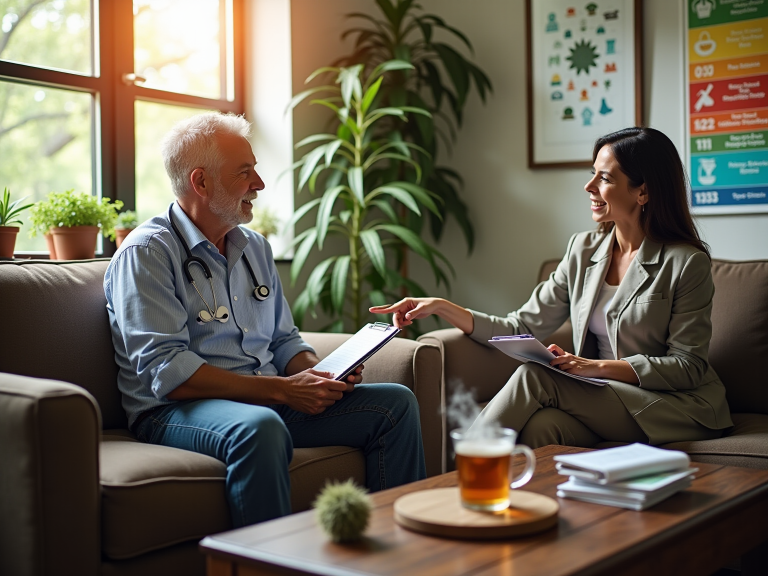
Steps to Obtain Medical Marijuanas Utah for Chronic Pain Relief
Discover how to obtain medical marijuanas in Utah for effective chronic pain relief.
